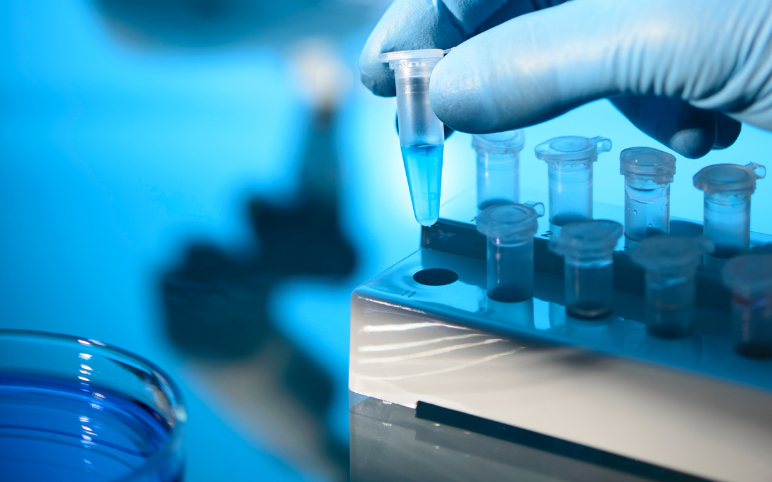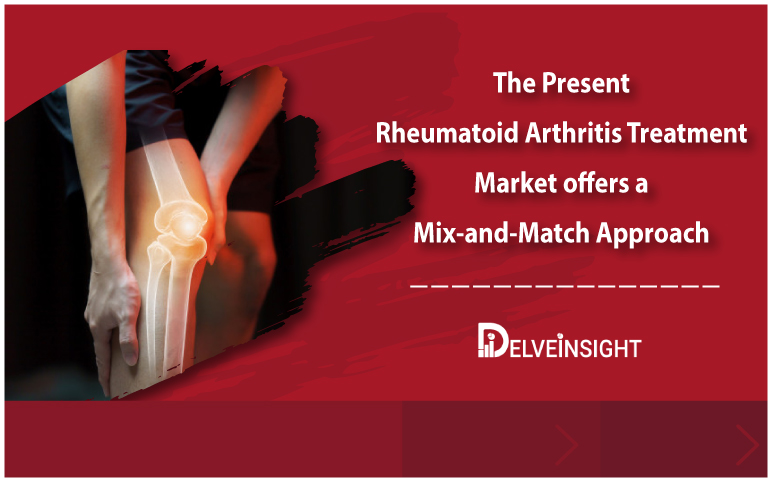Table of Contents
Rheumatoid Arthritis is a chronic inflammatory condition that causes pain, swelling and stiffness in the joints. It is an autoimmune disorder, in which the immune system mistakenly attacks the body tissues. If left untreated, it can lead to disability, decreased quality of life and premature mortality. As of now, there is no cure for Rheumatoid Arthritis; however, medication and supportive treatments options are available in the market that can manage its progression. Rheumatoid Arthritis has a worldwide prevalence of about 1% with an annual incidence of approximately 3/10,000 adults. Similarly, as per the study conducted by Alan J. Silman et al., the prevalence of Rheumatoid Arthritis is relatively constant in many populations, at 0.5–1.0%. However, a high prevalence of Rheumatoid Arthritis has been reported in the Pima Indians (North American Indians) (5.3%) and in the Chippewa Indians (6.8%). In contrast, low occurrences have been reported in populations from China and Japan.
As per the Delveinsight, the total prevalent cases of Rheumatoid Arthritis in the seven major markets (i.e the United States, EU5 (the United Kingdom, Spain, Germany, Italy, France) and Japan) were observed to be 4,356,793 in 2017 which are estimated to rise during the study period (2017–2030). The United States, in 2017, accounted for the highest number of cases in the 7MM, i.e., 1,333,290 prevalent cases. Apart from this, among the EU5 countries, the highest number of prevalent Cases of Rheumatoid Arthritis was in Germany (in the year 2017).
As per the WHO, it is more common in women and in developed countries. Also, it reported that it affects the most productive years of adulthood, between the ages of 20 and 40. It severely affects the quality of life, and within ten years of the onset, at least 50% of patients in developed countries are unable to hold down a full-time job. Apart from disability, Rheumatoid Arthritis can lead to various emotional, social and economical impacts on the affected individual and their families.
What is the Main Cause of Rheumatoid Arthritis?
Even after several years of research, exact causes of Rheumatoid Arthritis are unknown, but some factors are believed that trigger the immune system to mistakenly send antibodies to attack the joints and the tissues surrounding them; which in turn results in pain and inflammation. Among various theories put forward by the researcher, bacteria, or a virus is one of the factors that trigger Rheumatoid Arthritis; however, it is not still proven.
Another interesting fact about Rheumatoid Arthritis affected people is that they tend to have higher levels of antibody (Rheumatoid Factor/RF) and anti-CCP antibody in their immune system. These antibodies are signs of hyperactive immunity.
What are the Risk Factors for Developing Rheumatoid Arthritis?
Several risk factors are considered that may increase the chances of developing Rheumatoid Arthritis. Some of the most common factors include:
- Genes – Genes are considered to play a small role in Rheumatoid Arthritis. However, the risk of Rheumatoid Arthritis gets higher when the person is exposed to certain environmental factors.
- Sex – According to various analysis, women are more 2-3 times more frequently diagnosed with Rheumatoid Arthritis compared to men. Similarly, as per the Delveinsight’s assessment, in the seven major markets, the total gender-specific prevalent cases of Rheumatoid Arthritis were 1,007,646 for men and 2,818,003 for women, in the year 2017.
- Age – Rheumatoid Arthritis can begin at any age; however, the onset is higher for the people who are in their sixties. As per the Arthritis Foundation, it is rare in men under the age of 45 while in women, it most commonly begins between ages 30 and 60. As per the Delveinsight’s epidemiology assessment, in 2017, the highest number of Rheumatoid Arthritis cases were observed in the age-group 55–64 years, i.e., 1,316,096 cases in the seven major markets. The number of cases for this age-group will reach up to 1,451,805 by 2030 in the 7MM. People with the onset of Rheumatoid Arthritis at an early age have a higher risk of developing other health complications.
- Smoking – Cigarette smoking, coupled with the genetic factor, can increase the risk of developing Rheumatoid Arthritis.
- Hormones – It is observed that hormones differentially influence the onset of Rheumatoid Arthritis in premenopausal and postmenopausal women. However, the role of hormones is still unclear. Various researches are going on to find the exact link between the hormone and Rheumatoid Arthritis.
Apart from these, obesity, diet, environmental factors are some additional risk factors for Rheumatoid Arthritis.
What are the Sign And Symptoms of Rheumatoid Arthritis?
The early signs and symptoms of Rheumatoid Arthritis vary from person to person and also from time to time. At the early stages, smaller joints such as that of fingers and toes are affected, at the later stage as the disease progresses, it affects the wrists, knees, ankles, elbows, hips and shoulders joints. The Rheumatoid Arthritis symptom resembled other conditions also, which makes its diagnosis difficult. Pain, aching, tenderness, and stiffness of joints are the main symptom of Rheumatoid Arthritis. These symptoms occur in more than one joint and last for six weeks or longer. Affected people often get exhausted (fatigue) and experience a low-grade fever. Apart from these weight loss, a poor appetite, sweating, and weakness are some additional symptoms of Rheumatoid Arthritis.
The signs and symptoms of Rheumatoid arthritis may come and go. When the inflammation and other symptoms of the disease increase or get worse, it is called a flare. Similarly, when the symptoms (such as swelling and pain fade) get better, it is called remission.
What are the 4 Stages Of Rheumatoid Arthritis?
As Rheumatoid Arthritis progresses, it brings many changes in the body. The symptoms due to its progression, vary from stages to stage and also from person to person. Each of the stages follows different treatment goals.
In order to discover the progression of Rheumatoid Arthritis in the body, it is categorised into four different stages based on corresponding symptoms. The four stages of Rheumatoid Arthritis are as follows:
1). Stage 1: Early Rheumatoid Arthritis
Most people do not have any symptoms at this stage. However, they may feel joint pain, stiffness, or swelling. There is no damage to the joints; however, the joint lining (called the synovium) gets inflamed.
2). Stage 2: Antibodies Develop and Swelling Worsens (Moderate Rheumatoid Arthritis)
Inflammation of synovium caused damage to joint cartilage. People start experiencing pain which leads to a limited range of motion. The inflammation of the other body parts such as in the lungs, eyes, skin, and/or the heart also start. It is observed that in most of the cases, the Rheumatoid Arthritis advances into the second-stage of severity without being detected.
3). Stage 3: Symptoms are Visible (Severe stage/Severe Rheumatoid Arthritis)
At this stage, the symptoms of Rheumatoid Arthritis become fully evident and start affecting the patient to a larger extent. The cartilage between the bones has worn away; people feel immense nerve pain, muscle weakness, swelling, and mobility problems.
4). Stage 4: Joints Become Fused (End stage of Rheumatoid Arthritis)
At this stage, the inflammatory process ceases and joints no longer work. People experience immense pain, swelling, stiffness and lack of motion.
What are the Complications of Rheumatoid Arthritis?
Rheumatoid Arthritis apart from affecting the quality of life can lead to the risk of developing many other diseases. Some of the most common complications include:
Cardiovascular disease (CVD)/ Heart disease – Inflammation due to Rheumatoid Arthritis can affect the heart muscle in its surrounding areas which increases the risk of CVD such as cholesterol, diabetes, high blood pressure, heart attack and stroke. The joint pains can lead to less physical activities. The Rheumatoid Arthritis affected people are often advised to focus on risk factors that can affect the heart, such as smoking and lose weight.
Lungs – Rheumatoid Inflammation and scarring of the lung tissue can lead to pleurisy or pulmonary fibrosis which causes shortness of breath..
Blood vessels – The blood vessels are also affected due to Rheumatoid Arthritis. Inflammation of the blood vessels can cause thickening, and narrowing of blood vessel walls, which can cause damage to tissue, nerves, skin and other organs.
The Osteoporosis, Dry eyes and mouth, Lymphoma, and Carpal tunnel syndrome are some of the other complications of Rheumatoid Arthritis.
How is Rheumatoid Arthritis Diagnosed?
The early diagnosis of Rheumatoid Arthritis plays key roles in ceasing the disease progression and reducing the damage to joints. However, it is difficult to diagnose Rheumatoid Arthritis during the early stages, as most of the symptoms overlap with the symptoms of other diseases such as systemic sclerosis, autoimmune disorders, lupus, psoriatic arthritis and with other connective tissue diseases. The symptoms of Rheumatoid Arthritis come and go, which also makes its diagnosis difficult. To fully confirm the Rheumatoid Arthritis, the rheumatologist considers the patient’s symptoms, assessment of risk factors, family history, and a wide range of Blood Tests & Imaging Techniques. The blood test for Rheumatoid Arthritis considers factors such as Erythrocyte Sedimentation Rate (ESR), Anti-Cyclic Citrullinated Peptide, C-Reactive Protein (CRP), and many others. Similarly, the Imaging Techniques includes Ultrasound, X-Ray and Magnetic resonance imaging (MRI).
What Happens if Rheumatoid Arthritis is Left Untreated or if There is Delay in Treatment?
If left untreated it can cause chronic pain and disability. As per the Johns Hopkins Arthritis Center, the Rheumatoid Arthritis causes joint damage in 80% to 85% of patients, with the brunt of the damage occurring during the first two years of the disease. The risk of mortality also increased significantly with time. The chance for untreated people with Rheumatoid Arthritis to die is two times higher as compared with unaffected people with the same age if the disease remains untreated.
Can Rheumatoid Arthritis be Cured? What are the Treatment Options for Rheumatoid Arthritis?
As of now, there is no permanent cure for Rheumatoid Arthritis; however, early treatment and support options can manage its progression and the risk for joint damage and swelling. At present, the main treatment options for Rheumatoid Arthritis include medicine, supportive treatments, surgery (to correct any joint problems that develop over a period of time).
The medicine helps patients to relieve symptoms and also slow down the progress of the condition. The medicine basically consists of Disease-Modifying Antirheumatic Drugs (DMARDs) and Biologics Treatments. DMARD consists of methotrexate, leflunomidek, hydroxychloroquine, and sulfasalazine; DMARD is used to target inflammation, reduces the progression and prevents joint deformity. The Biological treatments options include etanercept and infliximab. Supportive treatment includes physiotherapy and occupational therapy. Supportive treatment keeps the patient mobile and helps them to carry out their day to day activities. Apart from these dietary modifications, alternative treatment (home remedies), and physical exercise also play a vital role in the management of Rheumatoid Arthritis symptoms.
Which Companies are Working in the Rheumatoid Arthritis Treatment Market?
The dynamics of the Rheumatoid Arthritis treatment market is anticipated to change in the coming years owing to the increasing awareness, emerging therapies and expected increase in investment in the R&D activities. Rheumatoid Arthritis treatment market possesses fierce competition and companies are diligently working towards the development of new and improved treatments options. At the global scale, some of the key companies in the Rheumatoid Arthritis treatment market include GlaxoSmithKline, Gilead, Galapagos NV, R-Pharm, Taisho Pharmaceuticals, Aclaris Therapeutics, Viela Bio, Bristol Myers Squibb, AbbVie, Pfizer, Philogen, Merck KGaA, Genentech, UCB Pharma, Pra Health Sciences, Izana Bioscience, Takeda, Abivax S.A, Hope Biosciences, and several others.
The ongoing clinical trial and R&D activities by the major pharma companies provide high hope for the people affected by this indication. The launch of emerging therapies in the upcoming years is expected to significantly improve the health outcome for the people affected with it.









-Agonist.png)


